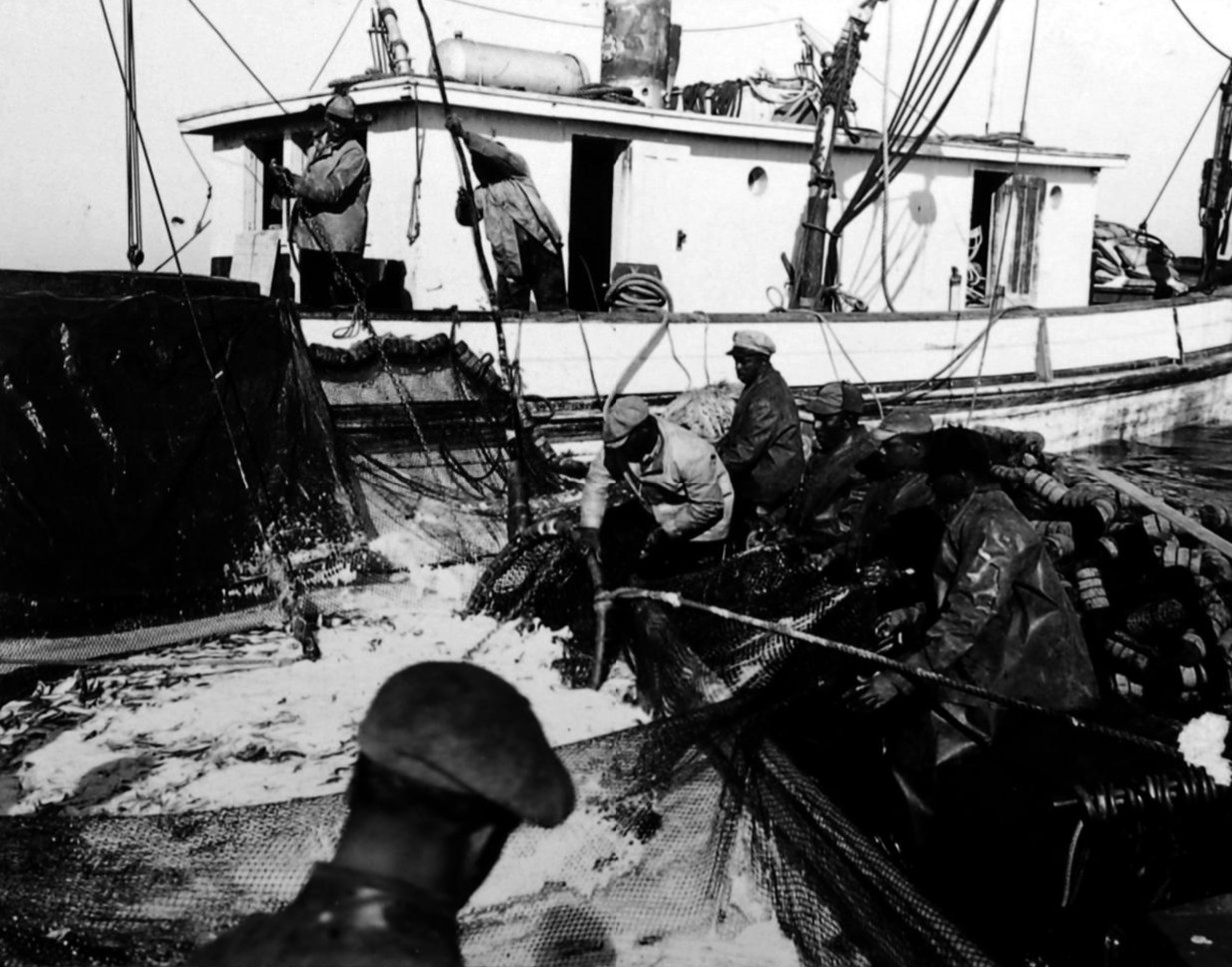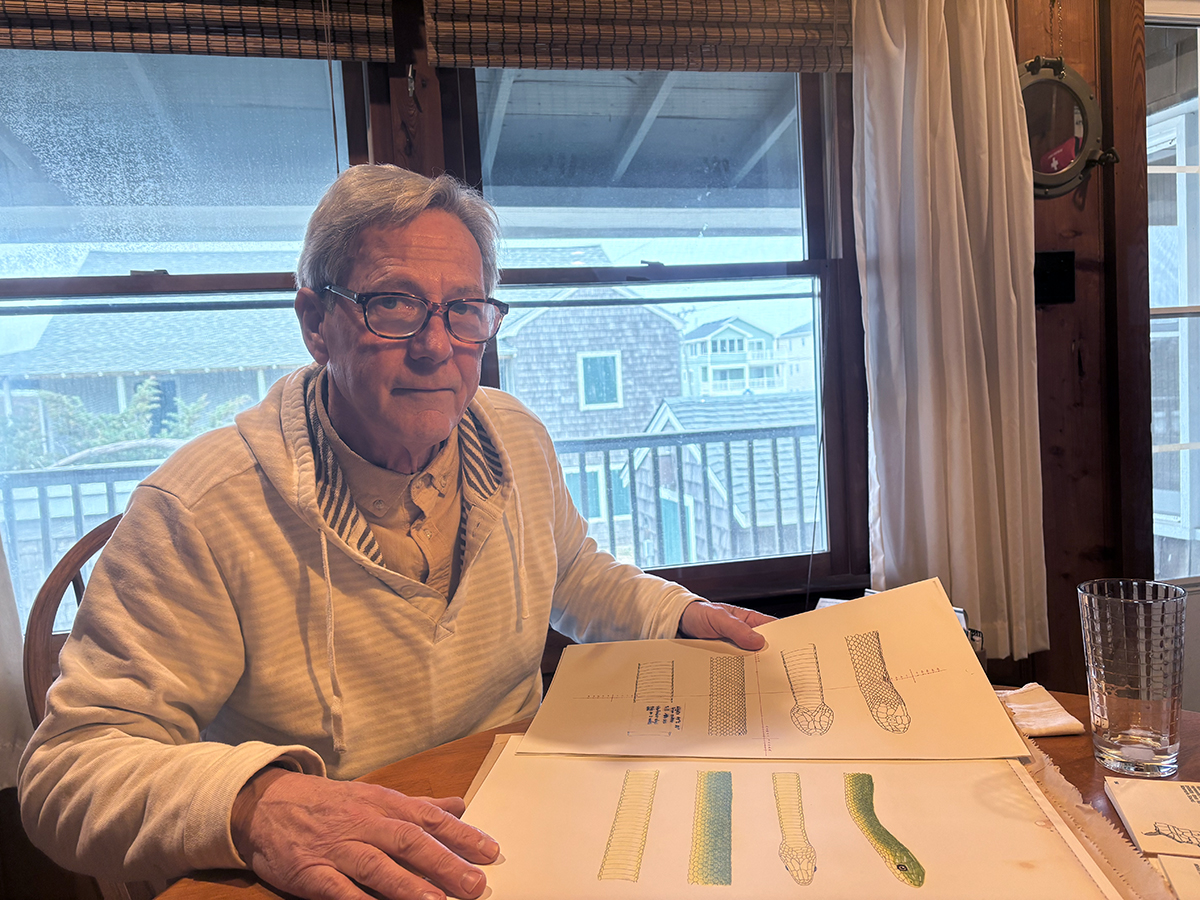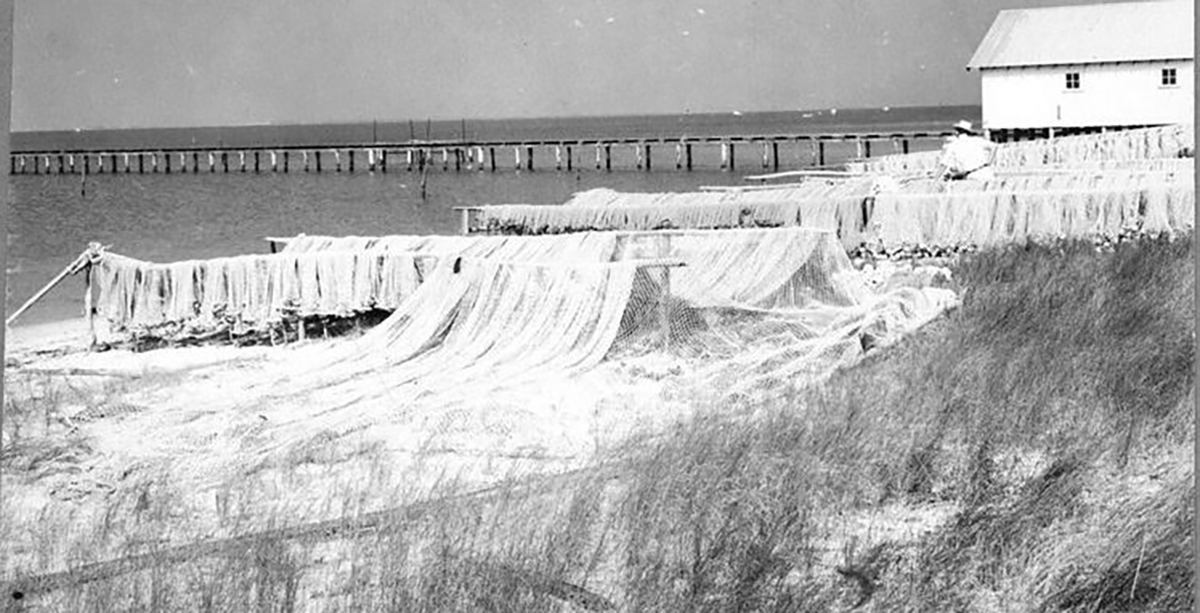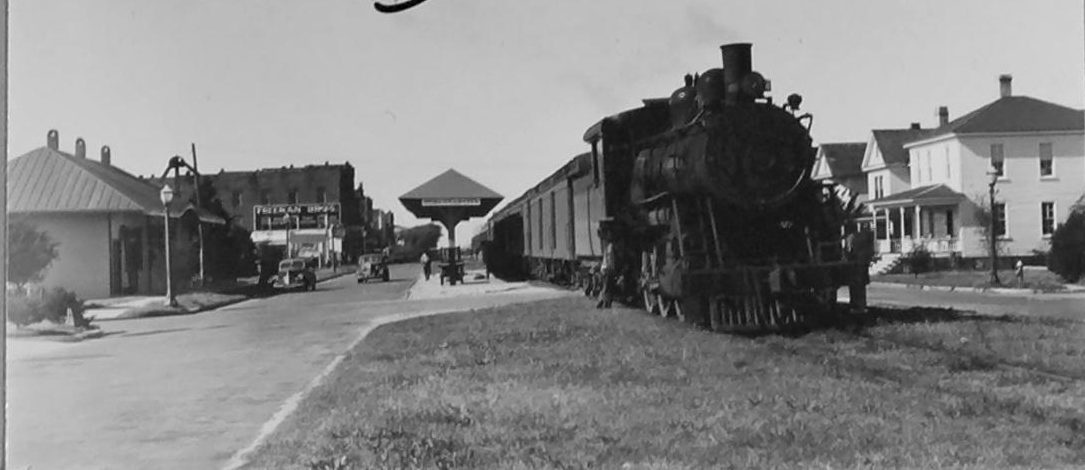LELAND– She may sit on the board of directors for a Southern environmental group, but she’s a New Yorker through and through, and you won’t catch Veronica Carter sleeping outdoors by choice.
“I believe that if God wanted us to live outdoors then he wouldn’t have let us create houses,” she said.
Supporter Spotlight
However, try to put a landfill anywhere near her backyard and then lie about the poisons you’ll put there, and Veronica Carter will be quick to call you out.
That’s what she did a few years ago when Hugo Neu announced plans for a huge recycling dump in Navassa, a predominantly black community in Brunswick County. Carter led the opposition that successfully pushed a bill through the N.C. General Assembly that stopped that landfill and three others from being built throughout Eastern North Carolina.

Veronica Carter now |
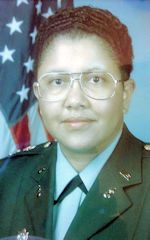
Veronica as an Army major |
“I was appalled when I found out that everyone of these mega landfills was being placed in minority communities,” said Carter.
Supporter Spotlight
The N.C. Coastal Federation soon came calling, inviting Carter to join its board of directors. She did because she wanted to prevent other companies from taking advantage of economically depressed communities.
Carter’s fearlessness in standing up to a corporate giant doesn’t surprise those who know her. This is a woman who spent 20 years in the Army, when female soldiers were still an oddity, and two years in war-torn African countries working for the United Nations.
While she says she enjoys the finer things in life, like a seafood diner at Catch restaurant in Wilmington, she has never been a “for-profit kind of gal.” “I was more driven to that gratification and satisfaction—feeling that I’d done something good for someone else,” she said. “I’ve been very blessed and I think I have to give back.”
Her grandfathers were coal miners in West Virginia who never finished grade school. Carter’s parents wanted their only daughter to go to college. A native of Brooklyn, N.Y., Carter entered Fordham University in the Bronx in 1977 to study political science.
While there, Carter looked for ways to help her parents pay for college. An enticing postcard she received in the mail one day inspired her to join the university’s Reserve Officer Training Corps, or ROTC. The Army would help with her education if Carter committed to an Army career after graduation.
“The bright person that I am thought it better to be an officer than to be a private, and I can do this while I’m going to college,” she said.
After a ROTC camping trip in pup tents during a pouring rain, her new Timberland boots covered in mud, she was hooked, much to her mother’s surprise. Finishing her bachelor’s degree as a distinguished military graduate, Carter was commissioned in 1981 as a second lieutenant in the Army. “It was kind of saying, ‘We figured you’ll be here for 20 years,’” she said.
In the Army at the time, the highest rank a woman held in her branch was major and there were only two of them. Without many female role models in the upper ranks, soldiers like Carter mostly fumbled their way through the instances of degrading profanity or sexual harassment.
She was first assigned to ordnance, which deals with logistics. “Unbeknownst to me, and probably the Army at the time, I was pretty good at logistics but I didn’t know what logistics was,” said Carter.
Logistic officers address the army’s needs in transportation, ammunition, maintenance, supplies and services. Whether or not it’s a time of war, tanks need to be repaired, refueled and rearmed. Soldiers have to fed, clothed and moved around. Soldiers like Carter made sure all the parts and clothing, food and fuel, bullets and bombs were where they were supposed to be.
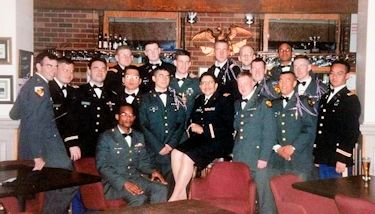 |
|
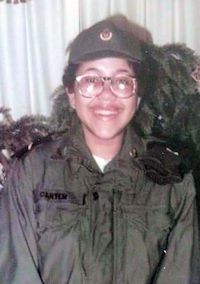 |
While a student at Fordham University in the mid-1970s, Veronica Carter, left, joined the Reserve Officer Training Corps to help pay for college.As a major in the Army years later, Veronica poses with the school’s ROTC unit. |
Carter remained in the army and received a master’s degree in public administration from Troy State University in 1989. Seven years later, she was assigned as a professor of military science and the department chair of military science at Fordham’s College of Business Administration. She also taught courses on problem-solving, decision-making and interpersonal communications as an adjunct professor at Fordham and New York University.
After retiring as a major in 2001, Carter became a full-time peacemaker when she took job as a logistics officer for the UN headquarters focusing on peacekeeping in Africa. After two years, she decided it was time to help her aging father move out of Brooklyn. Her mother had died in 2002.
Leland became their new home, nestled between Camp Lejeune and Fort Bragg and not too far from an aunt in Wilmington. While Carter had moved 11 times in the last 20 years, it was her father’s first move in 55 years and also the first without his wife. “I probably don’t need to work right away,” Carter said.
One day her father came home with a leaflet from the Piggly Wiggly about Hugo Neu’s plans to put a giant landfill five miles from their home.
Challenged over the radio by a condescending Hugo Neu spokesperson, Carter volunteered to visit the site where the company guy made the mistake of showing a retired army officer a topographic map and lying about the water in the area.
“Well, that’s interesting,” Carter told the Hugo Neu man as she pointed to the map, “because there’s a little lake right there. There’s a creek. This is marsh land here. Looks like from the contour intervals that we’re about 10 to 14 feet above sea level. How deep are your liners going to be because I’m thinking pretty soon you’re going to hit the water table?”
“I looked at him like I know I don’t have Booboo the fool tattooed on my forehead,” she now says.
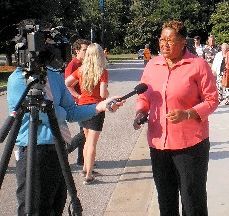
Veronica Carter talks to a reporter during a rally against the proposed Titan cement plant near Wilmington. |
Carter not only returned home to join the opposition, she became the political chair and the president of the grassroots group, Cape Fear Citizens for a Safe Environment. The group sued Hugo Neu for a copy of the business agreement. With that in hand, it reached out to the N.C. Coastal Federation for help. “We were looking for people who could help us take some of the technical data that we had gotten and explain it,” Carter said.
Federation lobbyist, the late Jim Stephenson, and coastal advocate Mike Giles, were instrumental in teaching the group how to work the halls of the legislature with a new bill. They also teamed them up with the six other grassroots groups representing other economically deprived, minority communities fighting huge landfills.
In 2007, Carter helped pass the Solid Waste Management Act, which made it economically undesirable for the Hugo Neu to build the landfill. “That law was created to deter all the tentative mega landfills from being developed at the time,” Carter said.
Shortly after the federation invited Carter to join its board of directors, Carter was also appointed by Gov. Mike Easley to the Coastal Resources Commission, or CRC, which sets coastal development rules. She was at the time the only African- American on the commission. Her term expired in 2012.
Carter also serves on the board of directors for Brunswick Habitat for Humanity, a nonprofit that builds houses in partnership with people in need.
When she retired, Carter was one of 63 female majors in her branch of the Army. She led the pack from the front, being the only woman in her platoon. Nine knee surgeries, two shoulder surgeries and an abdominal surgery later, she takes it easy in her Leland community where she’s lived now for 10 years. “It’s kind of nice to finally feel like, ‘Ok, this is home,’” she said.



